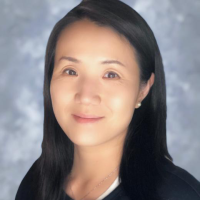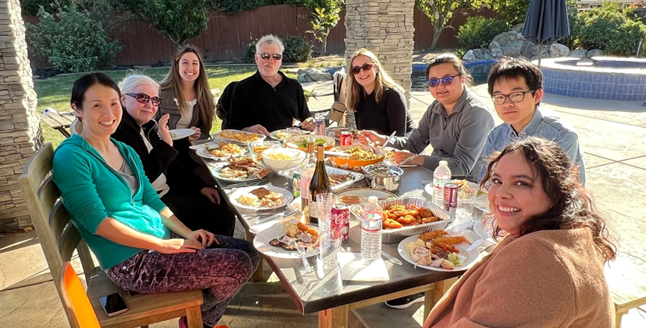Faculty Spotlight: Assistant Professor Xiaomo Chen, Ph.D.
As interviewed by Gabriela Lee

Dr. Xiaomo Chen is an Assistant Professor in the Department of Neurobiology, Physiology and Behavior in the College of Biological Sciences, a core member of the Center for Neuroscience, and an affiliated faculty at the Center for Neuroengineering and Medicine at UC Davis.
- What is your background?
I obtained my M.E. in Biomedical Engineering from Tsinghua University, followed by a Ph.D. in Psychology and Brain Sciences from Johns Hopkins University. I then pursued postdoctoral training in neuroscience at Stanford University. In 2021, I established my own laboratory at UC Davis. My contributions to the field have been recognized with several awards, including the NIH Pathway to Independence Award in 2019, the Simian Collective Young Investigator Award, and the Brain & Behavior Research Foundation NARSAD Young Investigator Award in 2022.
- What do you like to do when you are not in the lab or at work, i.e. not doing science?
I enjoy playing tennis, hiking, reading sci-fi books, watching sci-fi movies, and spending time with my family.
- How do you describe your research?
The research in my lab focuses on investigating neural mechanisms underlying essential cognitive control functions, including visual attention and risky decision-making, and on developing novel and innovative approaches to improve our understanding and enhance these essential functions. I very much enjoy my research and being a scientist: I love to pursue my interests in neuroscience, discover nature, and work with bright young people and senior colleagues! There are so many fascinating unknowns to uncover and interesting questions to ask about the brain!
- Do you have a favorite quote or a mantra or something that you use to keep yourself motivated?
自强不息,厚德载物
It is difficult to provide a precise translation, but the meaning is close to “Constantly strive for self-improvement” and “Great virtues carry great responsibilities”.
- What got you hooked on science? Who inspired you?
I grew up on a university campus where I was surrounded by people having science-related conversations and engaging in science-related activities. That environment has had a profound impact on my life, and ever since I've been fascinated by the mysteries of nature and the possibilities of our future. In my free time, I enjoy reading sci-fi books and watch sci-fi movies, and I find them inspiring. However, the most significant inspiration in my life comes from my mentors who have taught and guided me throughout my academic career. I'm especially grateful to my postdoc mentor Dr. Tirin Moore (Stanford University) and my Ph.D. mentor Dr. Veit Stuphorn (Johns Hopkins School of Medicine), who are models of scientific creativity and integrity. I'm incredibly thankful for their continuous guidance, help, and support, which have been instrumental in shaping me into the person I am today.
- Please share a less-than-perfect experience, like a failure or a challenge.
I started my academic career as a Biomedical Engineering student building electronic circuits for brain research applications. During this early stage, I developed a keen interest in the circuitry and computations of the brain. However, during my Ph.D., I decided to switch my major and study brain sciences in the US. My first year was challenging, as I had to catch up on the basic neuroscience knowledge and overcome the language barrier while adapting to a new culture. It was a stressful but rewarding year, and I'm grateful for the support of my mentors, colleagues, family, and friends, which helped me persevere through the obstacles.
- And how about a favorite success?
The challenge described above actually became my favorite success, allowing me to continue pursuing what I love to do until today. Moreover, this interdisciplinary background provides me with a unique perspective when approaching neuroscience questions.
- Do you have a favorite piece of advice for students interested in neuroengineering?
My favorite piece of advice would be to stay curious and keep learning. Neuroengineering is an incredibly exciting field with endless opportunities for innovation and discovery. As with any journey, there will be ups and downs along the way, but don't let that discourage you. Follow your heart and enjoy the journey of pursuing your dreams in neuroengineering!

